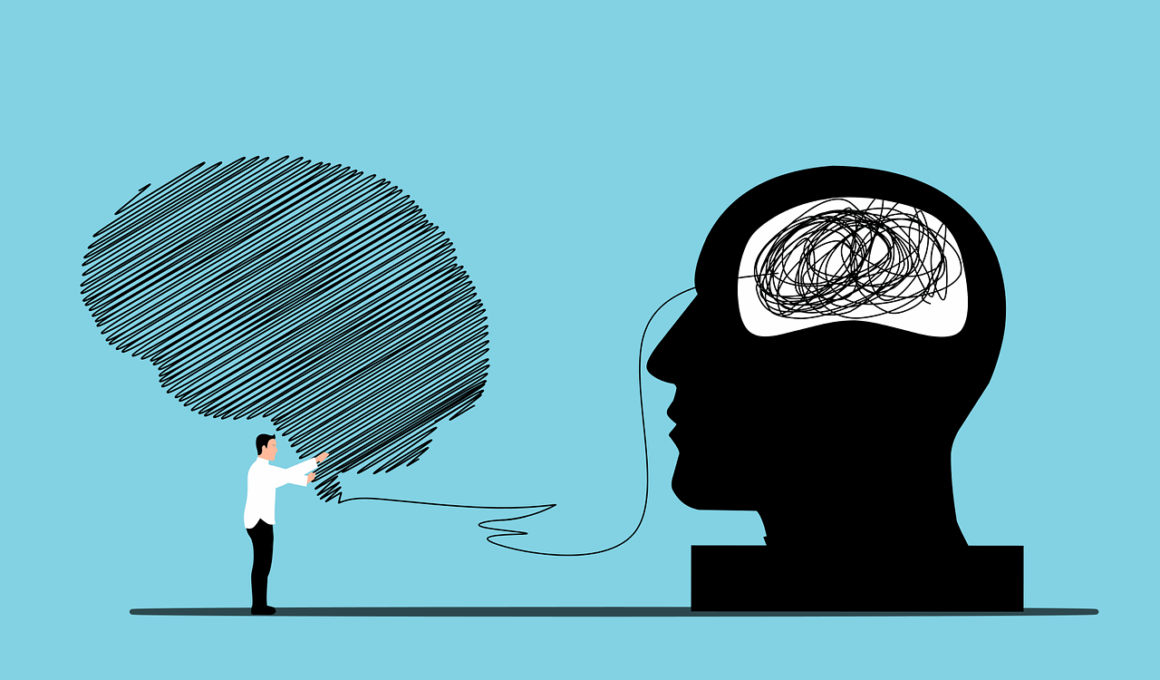The Use of Dialectical Behavior Therapy (DBT) in Eating Disorder Recovery
Eating disorders are complex conditions that affect emotional, physical, and mental well-being. Dialectical Behavior Therapy (DBT) is an effective treatment option that emphasizes emotional regulation, mindfulness, and interpersonal effectiveness. Originally developed for individuals with borderline personality disorder, DBT has proven beneficial for those struggling with various eating disorders. The therapy helps patients build a skill set to manage distressing emotions and impulses. In the context of eating disorders, individuals often struggle with negative self-image and emotional dysregulation. By focusing on mindfulness, clients learn to observe their thoughts and feelings without judgment. This approach enables them to understand the underlying emotions that may trigger disordered eating behaviors. Additionally, DBT promotes improved communication skills, which are essential for maintaining healthy relationships with family and friends. Support from loved ones can be crucial for recovery, making interpersonal skills vital. Furthermore, the structured environment of DBT provides a safe space for individuals to express their challenges. This supportive atmosphere encourages clients to confront their eating issues in a constructive manner, aiding recovery and lifelong health.
One of the core components of DBT is the focus on mindfulness. Mindfulness training allows individuals to be present in the moment and increases the awareness of their thoughts and feelings. This skill is particularly crucial for those with eating disorders, as it can reduce impulsive eating and promote healthier choices. Patients learn to identify triggers that lead to unhealthy relationships with food. For example, rather than impulsively turning to food in response to stress, individuals practice recognizing their emotions and the significance behind cravings. This greater awareness fosters a more rational approach to eating, encouraging individuals to question their urges and assess whether they truly reflect their physical needs or emotional states. Mindfulness also offers strategies for coping with difficult emotions, leading to healthier coping mechanisms. By integrating mindfulness into everyday life, patients can cultivate a balanced relationship with food and improve their overall well-being. Furthermore, the skills learned through DBT can be applied long after formal therapy ends, supporting ongoing recovery and resilience. The incorporation of mindfulness tools allows patients to face challenges head-on, leading to sustainable lifestyle changes.
Skills Training Within DBT
DBT incorporates skills training in four main areas: mindfulness, distress tolerance, emotion regulation, and interpersonal effectiveness. Each of these skill sets plays a crucial role in the recovery process for individuals facing eating disorders. Through mindfulness training, clients gain essential techniques to stay grounded in the present moment. This skill helps manage emotional triggers and reduce instances of binge eating or purging. Next, distress tolerance skills equip individuals with tools to handle crisis situations without resorting to unhealthy behaviors. Patients learn to navigate emotions without turning to food, enabling better emotional control. In addition, emotion regulation skills help individuals identify and change negative emotional patterns. For those with eating disorders, this means understanding how emotions contribute to unhealthy eating behaviors and developing healthier responses. Finally, interpersonal effectiveness training centers on enhancing communication skills. This enables clients to express their needs and set boundaries with others, which can be vital for recovery. Mastering these four areas creates a well-rounded therapeutic experience that fosters resilience and empowers individuals to sustain their progress beyond therapy.
Group therapy sessions are a vital component of DBT, providing added support for individuals recovering from eating disorders. Group settings create a sense of community and belonging, allowing participants to share their experiences and challenges in a non-judgmental environment. This collective experience not only reinforces individual progress, but also helps reduce feelings of isolation often felt by those with eating disorders. Participants learn that they are not alone in their struggles, which can be incredibly therapeutic. Within these groups, individuals can practice their newly acquired skills and receive feedback, further refining their abilities. Role-playing exercises are often employed to simulate real-life scenarios, promoting confidence in interpersonal situations. Supportive interactions within the group assist in developing trust and emotional safety, essential components for healing. Furthermore, group therapy allows for shared learning among peers, where individuals inspire each other toward recovery. Participants often cultivate long-lasting relationships with fellow group members, which can extend beyond therapy. This strong foundation can prove invaluable in maintaining motivation and accountability during recovery journeys.
Personalized Treatment Approaches
One of the standout features of DBT is its adaptability to various personal needs, making it a tailored approach for each individual. This personalized framework ensures that therapy aligns with the unique circumstances and characteristics of those struggling with eating disorders. By recognizing that each person’s experience with an eating disorder is distinct, DBT provides customized interventions that target specific issues and challenges. For instance, some clients may require more emphasis on emotion regulation, while others may benefit from increased mindfulness practice. Therapists work closely with clients to identify their personal goals and preferences, modifying treatment plans as necessary. Furthermore, the use of diary cards helps clients track their emotions, behaviors, and eating patterns. This ongoing self-monitoring not only aids in creating accountability in the recovery process but also highlights patterns and triggers that may require attention. Tailoring treatment fosters a stronger connection between the client and therapist, deepening trust and enhancing overall therapeutic outcomes. This personalized approach is one of the many reasons DBT shines as a treatment option in the realm of eating disorder recovery.
DBT has been shown to be particularly effective in treating individuals with co-occurring mental health disorders along with eating disorders. Many individuals experiencing such disorders often grapple with underlying issues such as anxiety, depression, or post-traumatic stress disorder. The skills learned in DBT address these interconnected challenges, promoting overall health and recovery. Importantly, DBT’s comprehensive framework focuses on both emotional and behavioral regulation, accommodating the complexities arising from co-occurring disorders. For instance, as patients learn to manage their emotions through DBT skills, they often find relief from co-occurring anxiety or depression as well. As a result, tackling multiple issues simultaneously fosters a more integrated and holistic recovery experience. Individuals find that as they heal in one area, such as their eating behaviors, improvements in their mental health are also achieved. Moreover, therapists trained in DBT are equipped to address the nuances of these complications, enabling clients to build a more robust foundation for enduring recovery. The synergy between treating multiple issues enhances the overall effectiveness of the therapeutic process.
The Road to Recovery
While the journey towards recovery from an eating disorder can be challenging, DBT offers hope and a set of pragmatic tools to navigate it. Those engaged in DBT often report improvements in emotional regulation, a reduction in disordered eating behaviors, and enhanced self-acceptance. Moreover, DBT empowers clients with lifelong skills that can enhance their overall quality of life. The ability to cope effectively with stress and interpersonal challenges translates into various areas beyond eating disorders. As individuals learn to apply DBT skills, they often discover that their relationships with food, body image, and themselves undergo transformative changes. Many describe a newfound sense of freedom, finding joy in fulfilling and nourishing their bodies without guilt. Recovery becomes a voyage of self-discovery, focusing beyond limitations and toward growth. Clients who engage fully with the skills in their own lives often find themselves not only recovering from their eating disorders but thriving in various aspects of existence. This comprehensive approach to treatment emphasizes the importance of holistic healing, making DBT an invaluable resource for individuals on their path to recovery.
In conclusion, the use of Dialectical Behavior Therapy within the realm of eating disorders presents a promising approach towards sustainable recovery. The skills taught through DBT, such as mindfulness and emotion regulation, equip individuals with valuable tools to manage their eating behaviors and emotional health more effectively. By pursuing a tailored approach that considers individual circumstances, DBT proves to be a versatile treatment option catering to diverse needs in recovery. Importantly, the supportive group therapy setting creates a sense of community and belonging for participants, combatting feelings of isolation. As individuals learn to communicate effectively, manage their emotions, and navigate their relationships, they progress toward healing. Moreover, the adaptability of DBT in addressing co-occurring mental health disorders exemplifies its holistic approach. This multifaceted perspective not only aids in alleviating eating disorders but supports overall mental well-being. Trained DBT therapists work collaboratively with clients, fostering trust and enhancing therapeutic relationships. Ultimately, the journey of recovery is unique for each individual, and DBT stands out as a beacon of hope, guiding many towards a healthier and more fulfilling life.


